Killing Eve TV Series | Review & Summary
Killing Eve is a spy thriller, yes, but it’s written by Phoebe Waller-Bridge, fresh off Fleabag. It’s a cat-and-mouse game, but the cat is a bored, brilliant MI5 analyst (Sandra Oh) and the mouse is a psychopathic, couture-wearing assassin (Jodie Comer) who is charismatic, hilarious, and utterly terrifying. It’s not about ideology or saving the world. It’s about two women who find in each other the only person on earth who truly sees them.
Killing Eve Recap
Killing Eve Season 1 wasn’t just good television. It was a paradigm shift. It was sexy, dangerous, witty, and it rewrote the rulebook on what a spy story could be.
The show’s premise was its genius. Eve Polastri is a low-level analyst, married, smart, but dying of boredom. She’s fascinated by female assassins. Villanelle is a pure psychopath, a ghost, who kills with creative, brutal flair. When their paths cross over a murder, it ignites a mutual, professional, and deeply personal obsession.
Waller-Bridge’s script was a masterclass in tone. It was a high-wire act that balanced brutal violence (a hairpin in the eye) with laugh-out-loud comedy (Villanelle telling a child, “I’ll wear this to your mother’s funeral”). The show understood its own central, twisted joke: this wasn’t a thriller, it was a romance. It was a “meet-cute” between two people who, in any other story, would just be trying to kill each other. Here, they were doing that and trying to impress each other.
The entire first season was a flawless, escalating courtship. From the theft of Eve’s suitcase to the tense, electric confrontation in Eve’s own kitchen, culminating in Eve stabbing Villanelle, it was the most toxic and compelling love story on television.
Sandra Oh, in her first post-Grey’s role, was a revelation. She played Eve as a woman joyfully, and then terrifyingly, unraveling. You watched her shed her normal life, her husband, her safety, her morals, not because she was forced to, but because she was bored. The allure of the darkness, personified by Villanelle, was simply more interesting.
And then there was Jodie Comer. This was a star-making role, a bolt of lightning. Comer made the monstrous human. Villanelle was a creature of pure id, a mimic who learned how to be a person by watching others. She was petulant, funny, and soulless, yet Comer found the cracks, the desperate need for approval (from Konstantin, from Eve), the flicker of vulnerability beneath the designer clothes. She became an instant, all-time-great TV anti-hero.
Supporting them was a flawless cast, particularly Fiona Shaw as the dry, enigmatic spymaster Carolyn Martens, a woman who could order a hit and complain about a croissant in the same perfectly detached breath.
The Showrunner-a-Season Problem
This is where the Hollywood post-mortem begins. PWB was a tough act to follow. The show adopted a “showrunner-a-season” model, a structural decision that is, on paper, creatively daring. In practice, it was the show’s fatal flaw.
Emerald Fennell (Season 2) kept the dark-comedy vibe alive, brilliantly staging the reversal: now Villanelle was the heartbroken one, and Eve was the one descending into darkness. The season ended with Villanelle shooting Eve, a perfect mirror to the S1 finale.
But by Season 3, the voice began to drift. The story, in a desperate need to expand its lore, leaned into the show’s weakest element: The Twelve.
This is narrative poison. The Twelve was the show’s mystery box, a shadowy cabal that, like all mystery boxes, was infinitely more interesting when it was just a concept. The more the show tried to explain The Twelve, the more generic it became. It devolved from a scalpel-sharp character study into a convoluted, and frankly boring, spy plot. The focus shifted from the why of Eve and Villanelle’s obsession to the who of a faceless committee. Nobody cared.
Ending Explained
And then, Season 4.
The final season felt like a different show. It committed the cardinal sin: it kept its two leads apart for almost the entire run, sending them on joyless, divergent quests. Eve was now a stoic, humorless revenge-bot. Villanelle, in an even more baffling turn, was trying to find Jesus. The spark was gone. The scripts felt tired, the plot labyrinthine.
It all limped toward a finale that wasn’t just disappointing; it was a fundamental betrayal of the show’s core promise.
After four seasons of “will-they-won’t-they,” our heroines finally team up. They infiltrate The Twelve’s boat, dispatching them with anticlimactic ease. They stand on the deck. They kiss. They finally embrace. After all the toxicity, all the blood, they have found their way to each other. It’s a moment of pure, earned triumph.
It lasts for thirty seconds.
Then, a sniper’s bullet, ordered by Carolyn, of all people, hits Villanelle. She falls into the Thames. Eve screams. The End.
It was a staggering failure of nerve. For a show that broke every rule, it ended on the cheapest, most regressive, and infuriatingly cliché trope in the book: “Bury Your Gays.” It was a nihilistic, cruel ending that served no thematic purpose. It rendered their entire four-season journey utterly pointless. It wasn’t tragic; it was just a cheap shot.
Killing Eve will be remembered as a show of two halves. The first half was a revolution, a brilliant, audacious, perfectly-performed masterpiece that redefined a genre. The second was a slow, heartbreaking lesson in how to let a masterpiece unravel. It remains essential viewing, but it’s a cautionary tale: a great premise and perfect casting can only survive so long without a consistent voice in the writer’s room.
It deserved better. We deserved better. And Villanelle, in all her glorious monstrosity, deserved a hell of a lot better than to be fridged in the final frame.
Alternative Ending
Here’s the thing about the ending we got: it was a failure of nerve.
It was a finale written by committee, terrified of its own premise. It took the most subversive love story on television and stapled it, in the final 90 seconds, to the most regressive, cowardly trope in the book. It wasn’t a tragedy; it was a character assassination.
You want the real ending? The one the show earned? It doesn’t end with a sniper’s bullet. It ends with a choice.
Here is the only way this story could have, and should have, concluded.
THE ALTERNATE ENDING
FADE IN:
EXT. DIXIE QUEEN – NIGHT
We are exactly where we were. The Twelve are dead inside. The mission, the “McGuffin” that was never the point, is finally over.
Eve and Villanelle stand on the deck. The London lights are a glittering, indifferent backdrop.
They look at each other. This is it. The end of the chase.
Villanelle is smiling, a real, unguarded smile. Eve is breathless, finally understanding that the monster on the other side of the glass was a mirror. The tension of four seasons breaks, and they kiss.
It’s not a tentative, chaste kiss. It’s a kiss of triumph, of survival. It’s an answer to the question the show asked in its very first episode.
And that’s when the red dot appears.
A single laser sight paints itself onto Villanelle’s chest.
Eve sees it. Her eyes widen in pure, unadulterated terror. The old Eve, the one who panics, is back.
But Villanelle doesn’t panic. Her eyes go cold. She’s not a lover anymore. She’s a professional. She doesn’t flinch. She doesn’t freeze. She’s been hunted her whole life.
A SHOT rings out, the same one we heard.
But Villanelle wasn’t the target. She was the bait.
The dot was on her, but the sniper was aiming for Eve.
In that nanosecond, Villanelle does the one thing she has never done: she performs a selfless act. She doesn’t dive in front of Eve, that’s a Hollywood cliché. Instead, she shoves Eve, violently, to the deck, taking the bullet herself. It rips through her shoulder, a brutal, ugly wound.
A second shot rings out. Eve, on the deck, screams.
Villanelle looks down at the blood, then up at the darkness. She almost… laughs. “That,” she hisses, “is Carolyn. Always so dramatic.”
“You’re hit!” Eve is frantic, trying to cover her.
“Get up, Eve,” Villanelle commands, her voice already tight with pain. “They’ll shoot again.”
This is the reversal. Eve is no longer the analyst; Villanelle is no longer the predator. They are just two women on a boat.
“Where do we go?” Eve asks.
Villanelle looks at the dark, freezing water of the Thames. She looks back at Eve. She grabs Eve’s hand.
“You wanted to jump, didn’t you?” she smirks, referencing the bridge from Season 3. “Let’s go.”
Before Eve can answer, Villanelle pulls them both over the railing. A third shot pings off the metal where they just stood.
They crash into the black water.
We see them submerge. We see the ripples. We see the lights of the Dixie Queen gliding away.
And then… nothing.
The camera holds on the empty, dark water. We wait. And wait.
This is the tragic ending. The Romeo and Juliet ending. They died together.
…But that’s not our show.
A beat-up truck rattles down a vast, empty, frozen highway. Snow-capped mountains dominate the frame. This is the middle of nowhere.
Eve is driving. Her hair is shorter, dyed a nondescript brown. She looks tired, but she doesn’t look bored.
Villanelle is in the passenger seat, feet on the dash, reading a crumpled copy of Guns & Ammo. Her arm is in a sling, but she’s wearing it like an accessory.
They are silent for a long beat.
VILLANELLE (Without looking up) “This place is boring.”
EVE “You’re still healing.”
VILLANELLE “I’m healed. The food is terrible. The people are… thick. I have not seen one good coat since we left London.”
EVE (A tiny smile) “We’re safe.”
VILLANELLE “Safe is the cousin of boring.”
Villanelle turns the page. Eve keeps driving. Another long silence.
VILLANELLE “She will never stop looking for us, you know. Carolyn.”
EVE “I know.”
VILLANELLE “So… what’s the plan?”
Eve glances at her. She sees the monster, the woman she stabbed, the woman who shot her, the woman who saved her.
She turns her eyes back to the endless, open road.
EVE “We keep driving.”
Villanelle looks at Eve. She sees the frumpy analyst, the woman she stalked, the woman who hunted her, the only person in the world who never, ever bored her.
A slow, genuine smile spreads across Villanelle’s face. She throws the magazine in the back.
VILLANELLE “Good. My shoulder is itchy. And I think I want to kill that moose.”
She points out the window. Eve just shakes her head, but she’s smiling now, too.
The truck continues down the highway, two specks of chaos in a vast, quiet landscape. They are free from The Twelve, free from MI6, and finally, disastrously, free to be with each other.
FADE TO BLACK.
Reviews
IMDB score is 8.1
Rotten Tomatoes score is 96%
Killing Eve TV Series Netflix
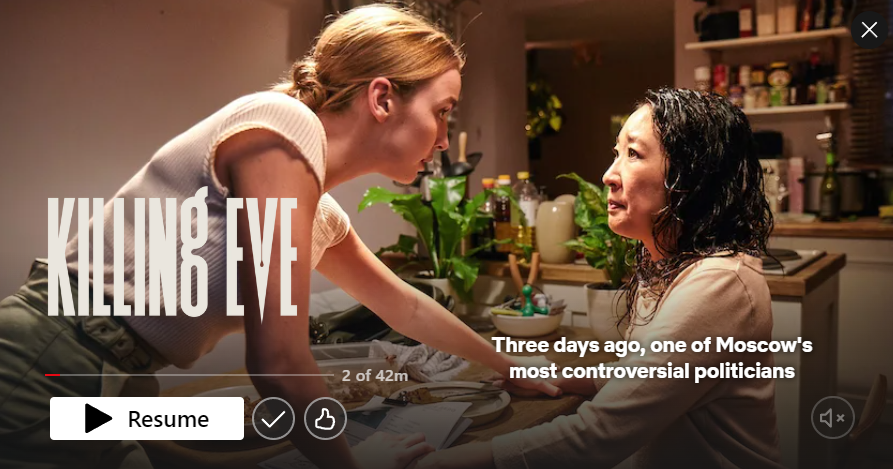

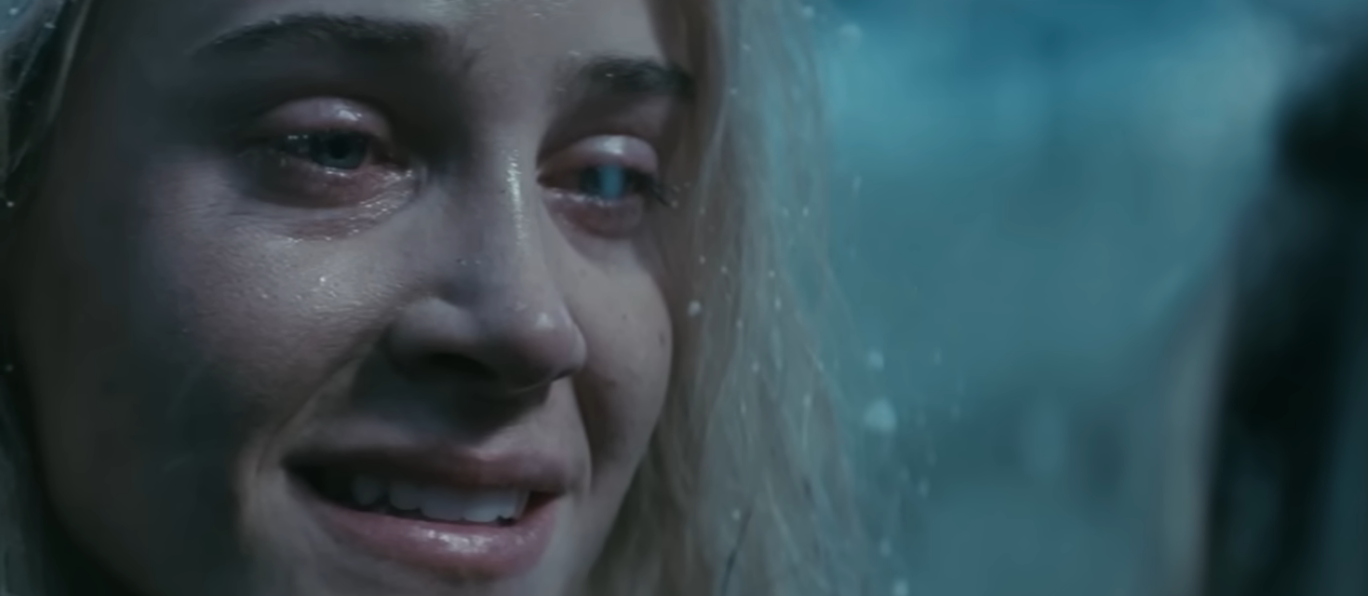
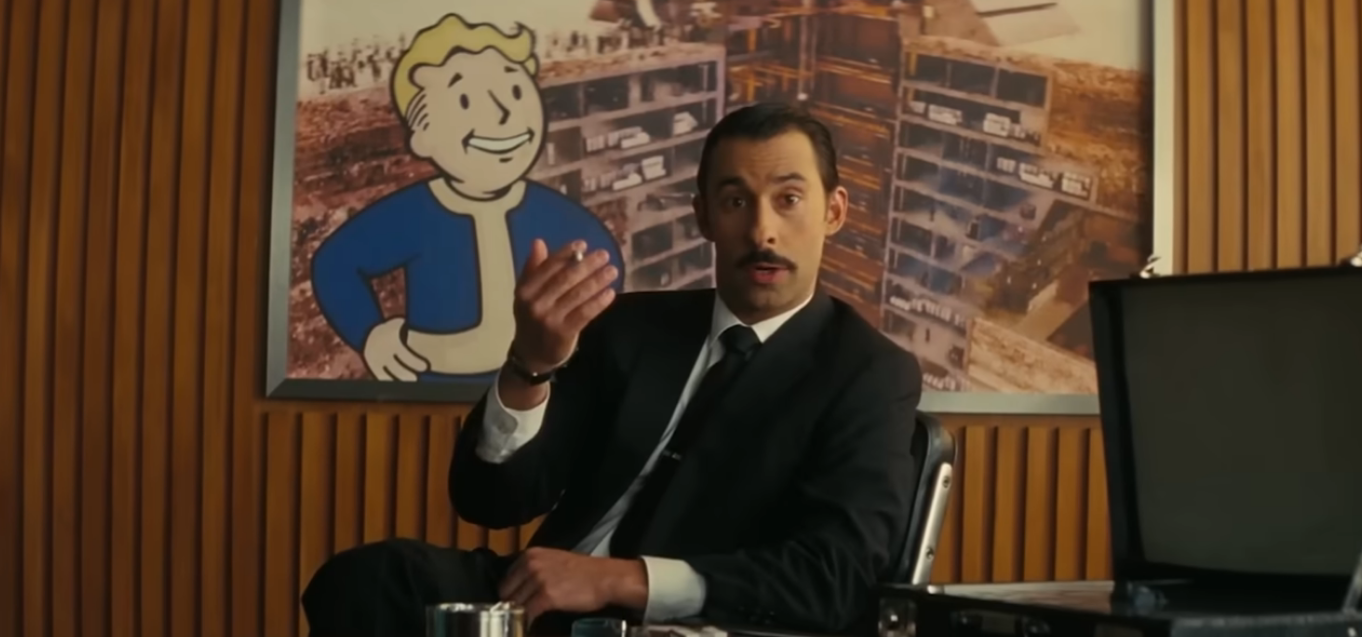
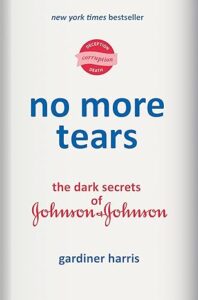
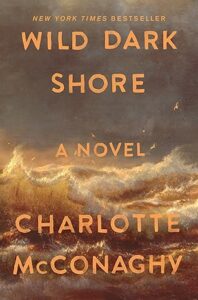

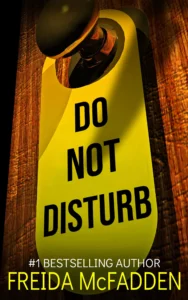

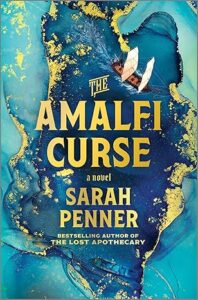


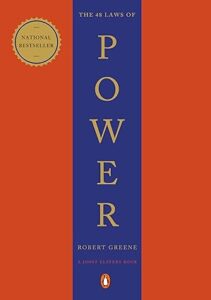
Post Comment